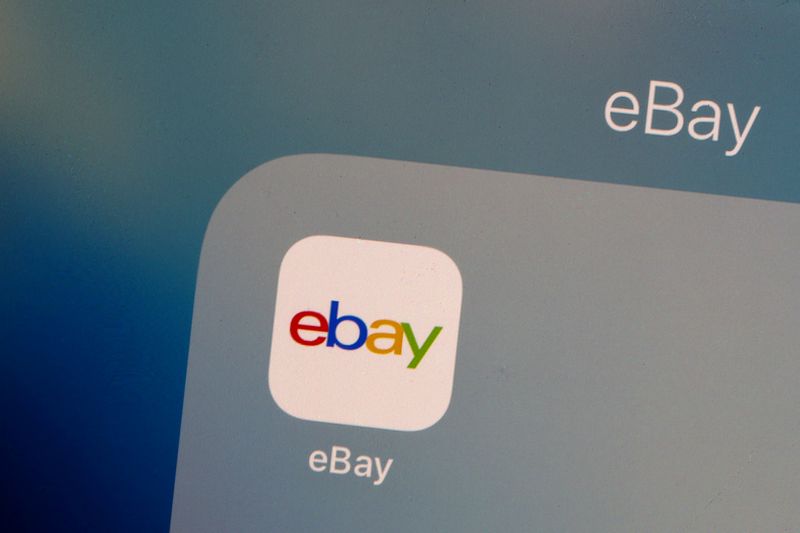By Richa Naidu and Helen Reid
LONDON (Reuters) – As Black Friday kicks off the holiday shopping season, retailers and manufacturers anticipate a growing number of British consumers will be hunting for refurbished and pre-owned bargains to save cash and shop more sustainably. As persistent inflation and high mortgage rates dent shoppers’ ability to spend, second-hand sellers like e-commerce firm eBay Inc (NASDAQ:) and British charity Oxfam say they are anticipating increased sales of used items from vacuum cleaners to clothes.
Acknowledging that their new products remain out of reach for many shoppers, more manufacturers are offering refurbished merchandise at a lower profit margin, following a trend set by Apple (NASDAQ:). Luxury speaker company Sonos (NASDAQ:) and exercise bike maker Peloton (NASDAQ:) are both selling refurbished goods on eBay UK this year, despite the risk it could cannibalise sales of their new products.
Nine out of eBay UK’s top 10 deals last Black Friday were refurbished items. This year, discounts will be deeper on refurbished products, including Sonos speakers and Peloton bikes, Eve Williams, general manager of eBay’s business in the UK, said in an interview.
“People don’t have the savings they had after COVID so they have to be savvier than ever,” she said.
Vacuum maker Dyson has in recent years tied up with eBay UK to sell officially refurbished products at a hefty discount to the price of new ones.
While a new Dyson V11 Animal Cordless Vacuum retails at around 499 pounds ($622), refurbished ones will be on the platform this Friday for 218.99 pounds, eBay said.
The global refurbished electronics market is worth about $48 billion and is expected to grow about 10% each year until 2030, according to data from Coherent (NYSE:) Market Insights. In comparison, the global electronics market, worth $723 billion, is forecast to grow nearly 6% each year until 2032, according to data from Precedence Research.
Some 23% of consumers globally say they are buying more second-hand products, according to the EY Future Consumer Index, a survey of 22,000 consumers published earlier this month.
Retailers as diverse as Sweden’s fashion seller H&M (ST:) and upmarket UK department store Selfridges are responding to the change in consumer behaviour.
Selfridges is aiming for almost half its customer interactions to be based on resale, repair, rental or refills by 2030, it said last year. H&M last month opened a second-hand clothing section in its flagship Regent Street store in London.
GROWING TREND
Traditional thrift stores are also benefiting as second-hand shopping loses its stigma and British aid organization Oxfam is offering 40% Black Friday discounts to woo consumers.
One third of British shoppers are planning to gift pre-owned items this year, according to a survey of 3,000 people commissioned by the charity, compared with one in four two years ago.
“We’ve seen a trend of people looking to buy secondhand gifts for many reasons: one is to save money, the other is because they’re looking to make more sustainable choices,” Oxfam’s director of retail, Lorna Fallon, said.
Lucy Baker, a 19-year-old student, says she regularly buys second-hand Christmas gifts for her family, including clothes, books, homewares and board games.
“I found a waistcoat for my dad in a charity shop in Peckham the other day – I saw it and I thought I have to get it, he’s going to love it,” Baker said as she browsed in a Crisis charity shop in Camberwell, south-east London.
“It’s definitely becoming more of a trend,” she added.
Part of the draw is price, she said, as her student budget makes it hard to buy new items from high street stores. Sustainability is another factor.
“I like the idea of rewearing and reusing as much as possible,” Baker said.
In the fourth quarter of last year, sales in UK charity shops grew by 8.6% compared the previous year, according to the Charity Retail Association. Meanwhile, the market size of Britain’s apparel industry has declined 3.9% per year on average between 2017 and 2022, according to data firm IBISWorld.
Oxfam is targeting a 6% increase in holiday season sales this year compared with the year before, it told Reuters.
Lesley Wright, a volunteer at an Oxfam shop in Brighton, England, is gearing up for her “busiest-ever” holiday season.
“We’re already seeing it on weekends,” said Wright, 63, who has been volunteering for Oxfam since the mid 1980s.
“People with families have to feed and clothe children, with the stressful, extra burden of Christmas gifts.”
Read the full article here







